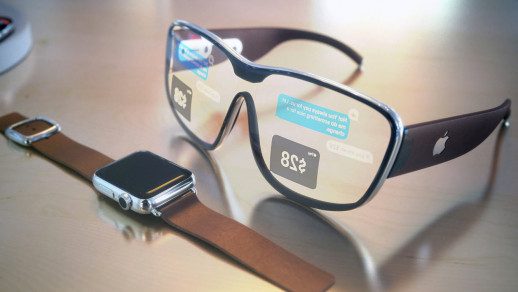Drop us a line and say hi!
Whether you have questions about pricing, features, or anything else, our team is ready to answer all your questions.
Facebook CEO Mark Zuckerberg has been dominating tech news headlines this week with Facebook’s announcement that they are committed to hiring 10,000 international employees to work on his new pet project “the metaverse”, mentioning that Facebook may even change their company name to reflect a metaverse-related brand.
Starting in this years 4th quarter, Facebook is redirecting $10 billion to Facebook Reality Labs, breaking out FRL as a separate reporting segment and tasking its metaverse division full tilt into developing its augmented and virtual reality products and services for the next generation of social online experiences.
“Our goal is to help the metaverse reach a billion people,” Mark Zuckerberg said. He added that a metaverse could enable “hundreds of billions of dollars of digital commerce.”
Some industry insiders say this is an effort to pivot from Facebooks currently flagging ads revenue, while others contend even more dubious intentions.
It’s not a huge leap to imagine Facebook controlling the most dominant metaverse, as the keystone for its future of data collection, information dissemination and advertising. But whether they can make up for the losses remains to be seen.
But augmented reality and virtual reality have seen substantial growth since Facebook initially acquired Oculus in 2014. Despite its losses, the industry forges ahead with the desire to create an immersive, interconnected experience that users can access with glasses or headset devices.
“I think it really makes sense for us to invest deeply to help shape what I think is going to be the next major computing platform, this combination of augmented and virtual reality, to make sure that it develops in this way that is fundamentally about people being present with each other and coming together.”

“Think of the metaverse as an extrapolation and convergence of many existing parts of the internet” Nick Kelly - Queensland University of Technology.
The metaverse is universally seen as the successor to the internet. It was originally coined in author Neal Stephensons 1992 novel Snow Crash where the “metaverse” is a shared virtual reality space using real-world concepts like roads, buildings, rooms, and everyday objects. People move around in this universe as avatars and can interact with other people through their avatars, and avatar entities that are really software agents.
Imagine the Matrix, but woke like Ready Player One. And the narrative goes something like this:
“The future of the internet can be shaped and It could be designed to make human lives better.”
There's the very popular gaming track, the social network track, and the blockchain tractor economical track, and eventually, these will all converge in one place. Rapid deployment of high-speed internet and 5G are bringing sci-fi movies to reality and impacting industries such as health care and education with immersive technology changing the way we interact with brands and services that were unimaginable just a few short years ago.
Companies like Microsoft, Apple, Google and Tencent have all signalled the metaverse in terms of their future development, but Facebook seems to be the first cab off the rank.
Capturing the market share is paramount and the biggest of the big tech companies are fighting to build standards and platforms that can provide everything a user could want or need within their their controlled virtual experience.
On the other hand, hope remains for the development of an open metaverse, which operates more like the early internet years. Brands are frustrated with being dictated to by the likes of Facebook and Apple and would champion an open alternative.
Epic Games recently raised over $US1 billion in funding to invest in the metaverse. The makers of the wildly popular Fortnite has already proven the case as a social network, a virtual showroom for intellectual property (now NFTs), and a marketplace for using V-Bucks, its in-game currency, and soon cryptocurrency.
Read our "How blockchain and cryptocurrency will disrupt your business"

Their most recent innovation is a concept called the Bionic Virtual Meeting Room. With the recent acquisition of Spaces (DreamWorks Animation technology creating VR theme parks), they can build VR experiences where people could see and interact with the same virtual objects. Sparked by COVID, Spaces pivoted to VR video conferencing, where participants can gather in a virtual space, represented by their avatar that can convey facial and body gestures while talking in real-time.

The acquisition of Israeli company Camerai, will help Apple’s smart glasses interpret the environment in which AR meeting sessions will take place with the wearers of the glasses seeing themselves just like any other participants. Based on current technology direction it's likely that Apple's first glass product will be a full-immersion VR system + AR with a lighter version AR glasses following.
Apple is betting on a more realistic and gratifying meeting experience with the addition of gestures that complete human communication without actually being on video. It’s their bet, well placed against ZOOM for the meeting fix.
It’s building virtual reality technology that is increasingly affordable, portable and tethered to the wider Facebook ecosystem. The newest version Quest 2 is a seamless self-standing, hand, eye and movement experience that doesn’t require a phone or computer to use. The trade-off is you must use and access it through the Facebook platform and with that comes access to your data.
“The metaverse will bring enormous opportunity to individual creators and artists; to individuals who want to work and own homes far from today’s urban centres; and to people who live in places where opportunities for education or recreation are more limited. A realised metaverse could be the next best thing to a working teleportation device, he says. With the company’s Oculus division, which produces the Quest headset, Facebook is trying to develop one.” - Mark Zuckerburg, Facebook
VR is the future of the ultimate advertising marketing experience. Brands are already starting to offer virtual objects and clothing for metaverse gaming platforms and the popularity of NTFS is already driving huge investment using the imposing scarcity tactic.
The future of the metaverse is amazing. How will your business need to adapt to this emerging new trend? Only the Big Apple and Zuck can tell us for now...
If you’re curious about how VR and AR can be used for your business, we’d love to chat.